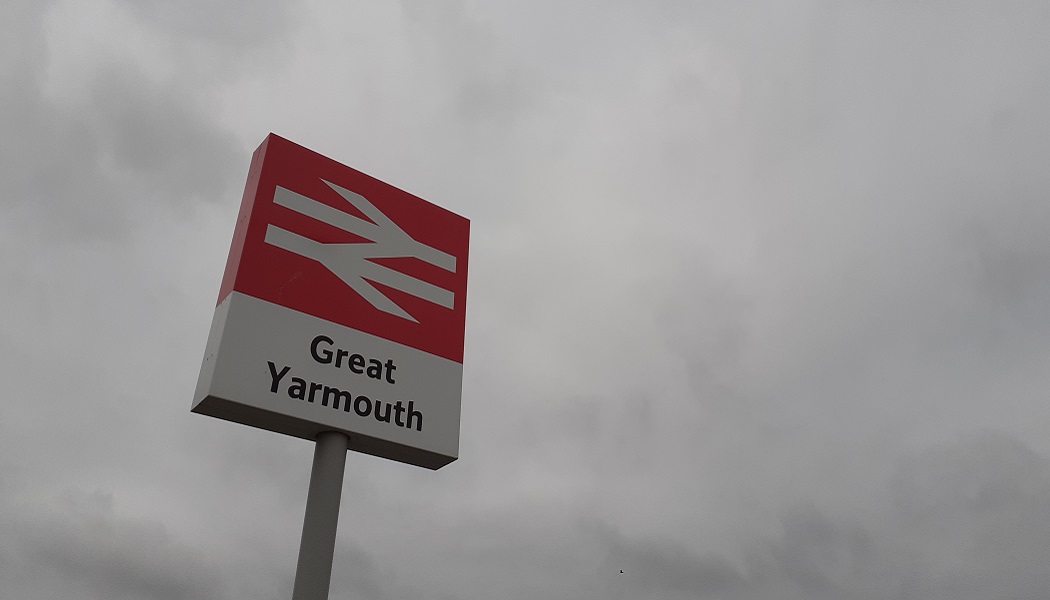As your train pulls into Great Yarmouth it’s clear you’ve reached a terminus, with both sets of tracks heading out of the station in a single direction. The task facing the town’s elected officials is ensuring that arriving on public transport is the only aspect of life in the town that leaves people feeling as though they’ve reached the end of the line.
As the locality’s once burgeoning tourism fortunes steadily faded from the mid-20th century – in direct correlation to the nascent market for foreign holidays taking hold – so too have the prospects of its residents.
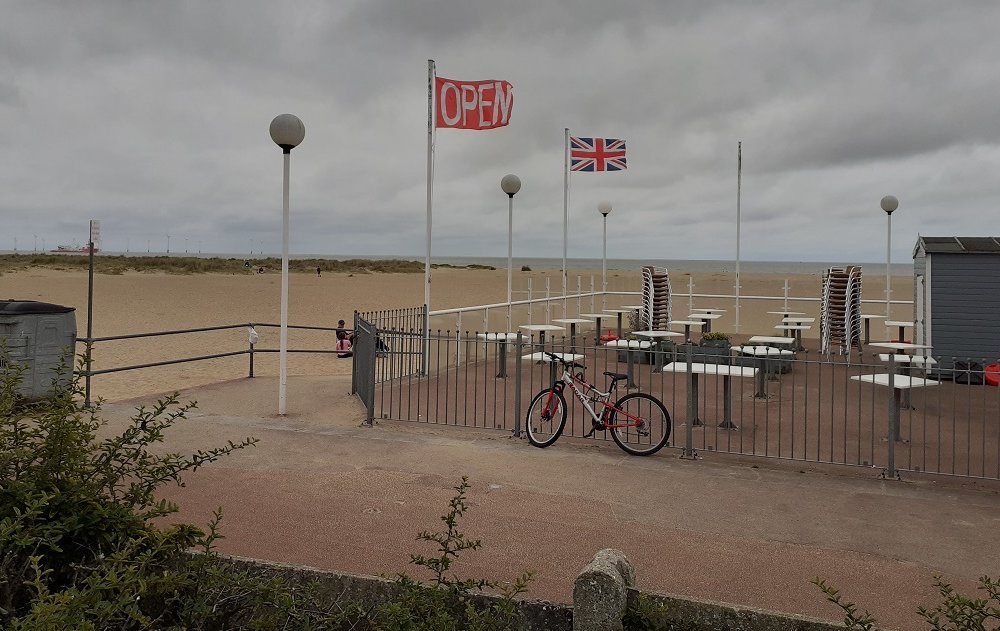
UK-wide studies seldom shine a forgiving light on Great Yarmouth, with the most recent Office for National Statistics findings proving no different.
Its latest National Online Manpower Information System highlights that just over 65% of residents are in employment – compared to a 78.5% average throughout the country. Life expectancy and educational attainment also consistently lag below national norms.
Coaxing cash to the coast
Around a year before Covid-19 eviscerated all fiscal predictions, the House of Lords published The Future of Seaside Towns, a report examining how once ritzy coastal destinations could arrest their decline into economic dereliction.
It claims that seaside conurbations, which “emerged as leisure and pleasure resorts in the nineteenth century”, have “been neglected for too long” and require urgent investment.
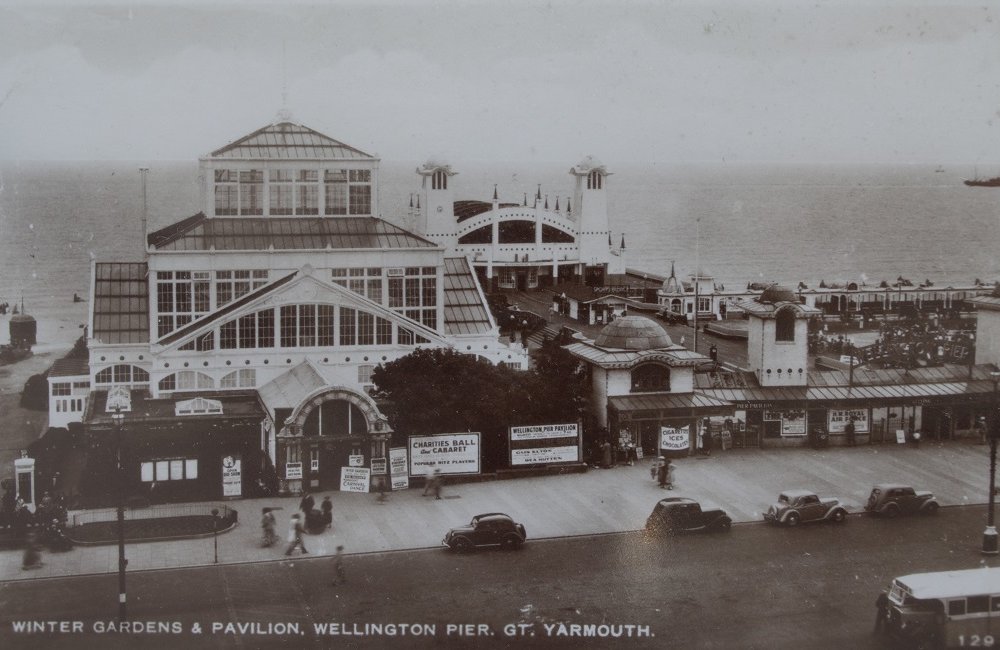
Great Yarmouth Borough Council knows all too well that attracting an influx of cash for capital projects is far from simple, but has nevertheless wasted no time in pursuing recent central government awards.
£20.1 million in the form of a Town Deal, £13.77 million from the Future High Streets Fund and £8m approved via the Getting Building Fund – all part of the prime minister’s much trumpeted ‘levelling up’ agenda – have instilled optimism anew.
A £1.9 million High Street Heritage Action Zone, which has received a £980,743 grant from Historic England, has also been developed.
Still hungry to lure more funding eastwards, Great Yarmouth has teamed up with the East Suffolk local authority to bid for the hotly contested City of Culture 2025 moniker.
Our joint bid to become UK #CityOfCulture2025 has the potential to bring real change, huge opportunities and significant benefits to our communities.
We're delighted to be one of a record 20 locations from across the country bidding for the title! ?@DCMS pic.twitter.com/z8jzuiayGZ
— Great Yarmouth and East Suffolk 2025 (@great_2025) August 20, 2021
The appeal is clear. Coventry, the 2021 holder of the title, has scooped £15.5 million from the Treasury and Great Yarmouth Borough Council tells Advisor it understands the Midlands city has experienced an “economic boost of around £211 million, with an additional 2.5 million visitors to its region”.
While the leader of Great Yarmouth Borough Council, Cllr Carl Smith, is under no illusion that a successful bid will solve the town’s problems overnight, he trusts that the process will deliver long-term change for the area.
“There is a lot of hard work ahead of us now but, with such solid backing, we are determined to do all we can to make the very best case to bring this incredible opportunity to our coastline.
“It’s an important part of our bid that the extensive programme of events and projects we devise not only reaches as many different parts of our communities and beyond as is possible, but also that we take everyone with us on this journey and they feel fully engaged, involved in and supported by it,” he notes.
What would a successful City of Culture bid mean for Great Yarmouth residents?
When asked how becoming City of Culture in 2025 would change the lives of locals, Great Yarmouth Borough Council told Advisor its aims include:
- our cultural organisations being recognised and celebrated locally, nationally, internationally, and to be better resourced to make great work and plan long-term
- to create new opportunities for talented creatives (particularly our young people) to stay and work in the area and to welcome new creative businesses
- to raise the profile of our venues and event promoters, with improved infrastructure and year-round audiences for a sustained improvement in the lives of our communities and residents, creating prosperity and new quality jobs, building confidence, resilience and health through wellbeing
- to invest in our environment through decarbonisation and sustainability, with closer links to our renewable sectors for local benefits, sustainable tourism and change in people’s behaviours
- a legacy in which our towns are reimagined, better known, better understood and appreciated at home and abroad, with preconceptions addressed and a new-found pride and confidence in our future and that of our residents
- With our Bid area less than 90 minutes from London, our renewed train network (with its operator supporting our Bid) and good access to airports and sea routes, we are ready to attract millions of new people to explore and appreciate our culture in 2025
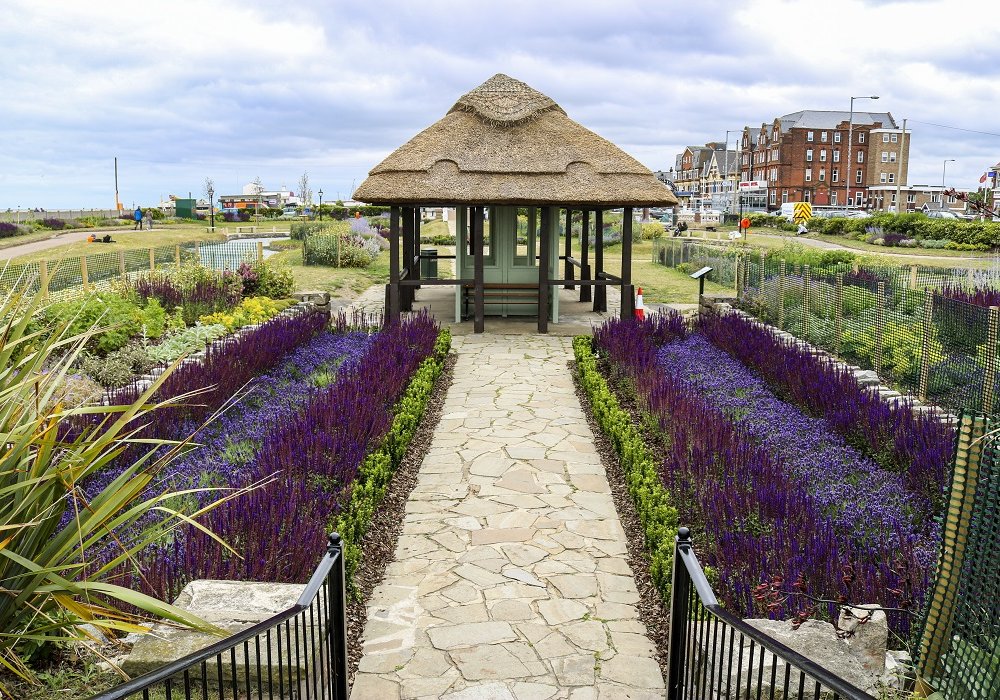
Fiscal fears
Two Great Yarmouth residents who are yet to be convinced by the council’s cultural agenda are Julia Devonshire and Kaavous Clayton, the duo behind artist-led charitable organisation Original Projects.
Devonshire tells Advisor that the region’s community-based arts organisations have not been consulted regarding the City of Culture bid, highlighting what she perceives to be a disconnect with policymakers who rely on “evidence-based approaches and are not coming from a lived experience of local mood or knowing people’s names”.
The reasons behind the bid also cause concern for the couple. Thinking purely of financial growth and new buildings is an “outdated notion of regeneration”, Clayton states, adding that growing healthy, self-sustaining communities should be the goal.
Their concerns, they note, are distilled by the response to Banksy’s recent series in the region.
Clayton fears the artist’s social commentary fell largely on deaf ears. “The messages some of the works are trying to convey relate to serious problems in the area. I’m not quite sure how they can be construed as supporting a City of Culture bid,” he notes, referencing a Great Yarmouth Borough Council statement saying it “would be nice to think this [Banksy’s artworks] may be an endorsement”.

The overall experience of the street artist’s ‘A Great British Spraycation’, Devonshire concludes, was “frustrating” as attracting tourism usurped the community emphasis groups like Original Projects have been trying to foster for years.
Discussing Banksy’s summer sojourn, the council told Advisor “the murals have generated a lot of interest and an influx of tourists visiting Great Yarmouth, sometimes for the first time”.
This, it adds, is a “brilliant thing for our resorts” and was helped further by “extensive local and national press and social media coverage” since the artist’s visit.
Unveils of the unexpected
With The Future of Seaside Towns recommending “piecemeal, short-term initiatives” be avoided in favour of “sustainable, long-term regeneration”, scepticism that fleeting cultural projects can deliver any real change is perhaps understandable.
One such ephemeral initiative this summer saw the National Gallery kick off its six-part UK touring exhibition, Jan van Huysum Visits, with a week in Great Yarmouth.
During the course of its fleeting residency, van Huysum’s Flowers in a Terracotta Vase (1736–7) was on display at PRIMEYARC, a former branch of Debenhams now inhabited by Original Projects.
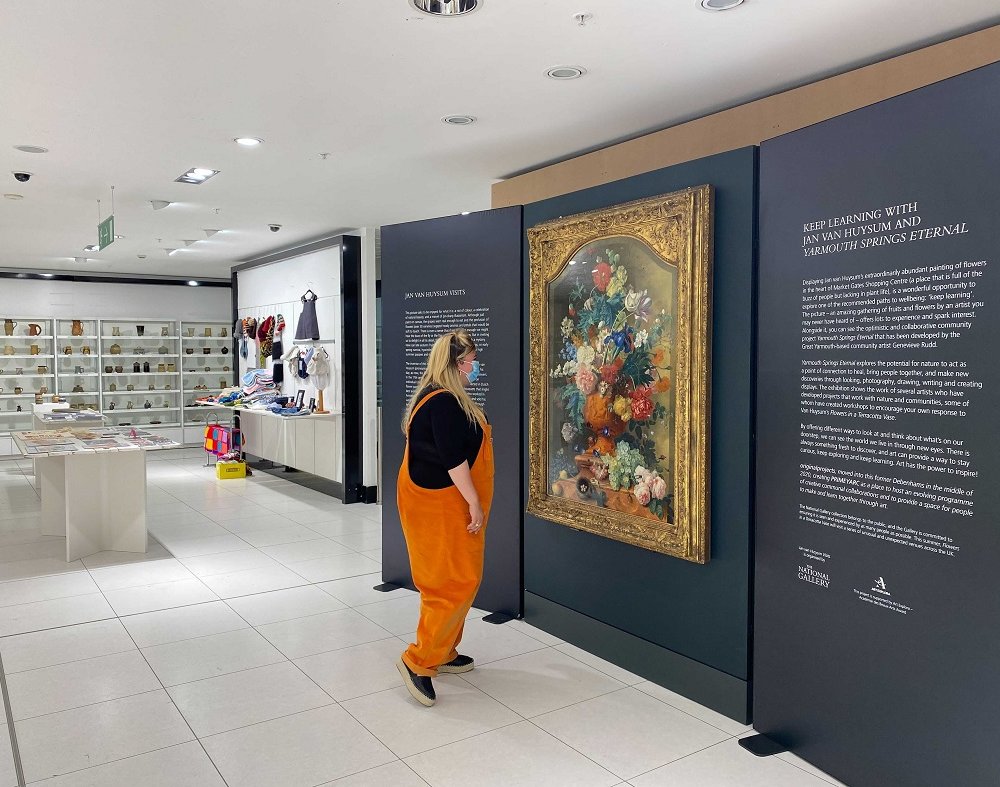
Around 600 people attended the event, with the National Gallery saying early indications are that a “very high percentage” of visitors rated the experience as ‘excellent’.
While acknowledging that a one-off show featuring an international masterpiece doesn’t solve anything in itself, Kaavous Clayton has faith that such events can prove useful if they are part of a longer-term strategy.
“Jan van Huysum Visits brought plenty of people to the space who might not otherwise have been there. Also, being located in a shopping centre, a lot of people who never would have seen an artwork like that were able to engage with it.”
Faithful funders
Trying to deliver community heritage assets capable of uniting locals from all backgrounds is central to National Lottery Heritage Fund’s mission in Great Yarmouth.
Over £9.9 million has been pledged to renovate the town’s Grade II* listed Winter Gardens, following the £1.7 million scheme it recently bankrolled to restore the nine decades old Venetian Waterways.
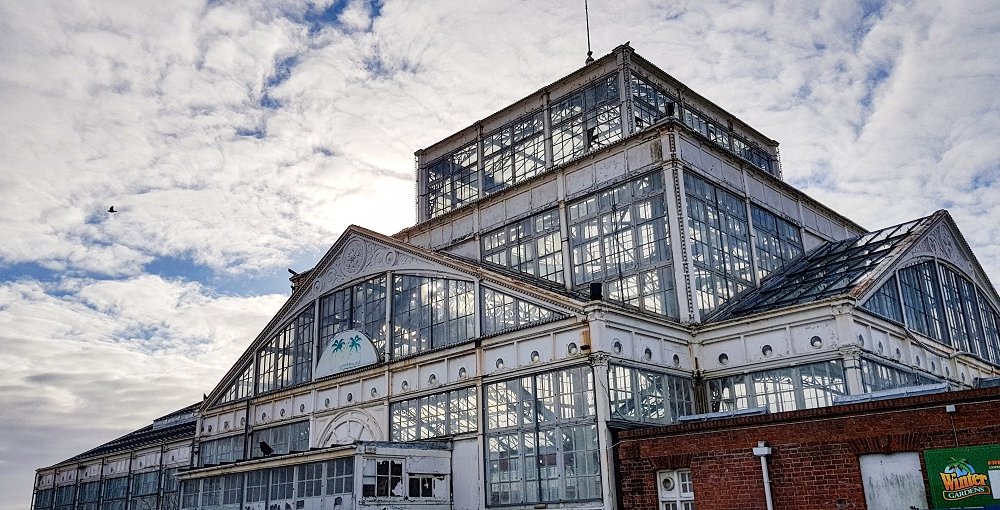
“It’s been demonstrated time and again that if you invest in the culture and historic environment of a place, it has huge benefits for people – in terms of wellbeing, education and overall quality of life,” says Liz Bates, Heritage Fund’s head of investment for Midlands and East.
“We try and target areas where there are deprived communities who don’t necessarily have access to those sorts of facilities, and Great Yarmouth undoubtedly fits that model.”
Bates believes many coastal towns have become reliant on philanthropy as private sector investment is “not viewed as commercially viable”, regardless of “really rich history and unique character that deserves celebrating”.
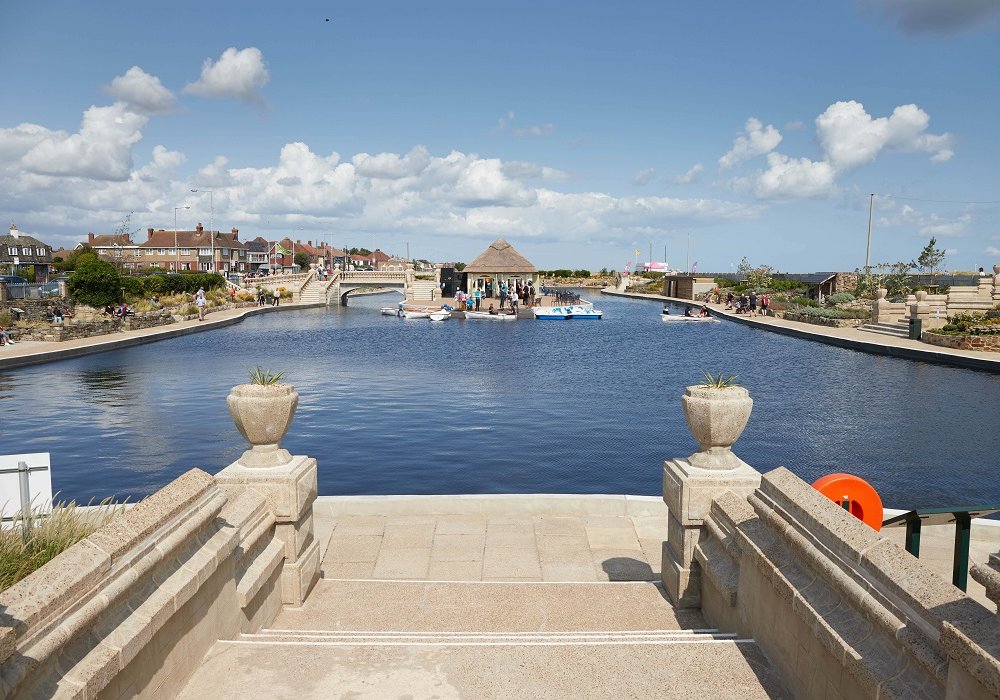
“Take the Winter Gardens as a prime example,” she continues. “It’s an iconic building from the town’s Victorian history and it has, for years, been stood there like a great white elephant: a symbol of the area’s decay.
“We thought it was worth investing in as a catalyst for change. We’re sending out the message that Great Yarmouth is on the way up. We will continue to invest, as will the council and other partners we’re working with. We hope and believe this can kick-start confidence to entice other investors to consider the area for future projects.”
Regarding the question of whether locals – many of whom live in pockets of stark deprivation – have the appetite to engage with regeneration efforts, Bates is unequivocal.
“You just have to look at the response to a call-out for public submissions regarding the Winter Gardens renovation: the survey received 26,000 responses, which is absolutely unheard of,” she tells Advisor.
“The same is true with the Venetian Waterways. Since the restoration was completed, that site has been sustained and managed by local volunteers.”
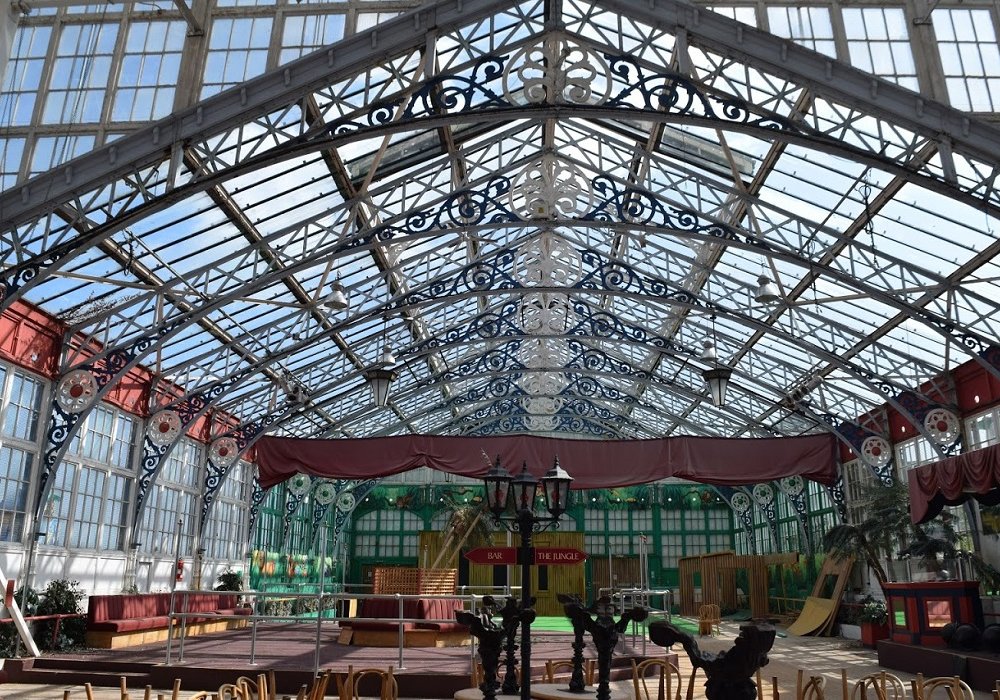
As long as consultations ensure redeveloped spaces provide the services needed by locals, Heritage Fund’s regional head of investment believes a meaningful positive change can be delivered.
“If we make these investments and commitments to people by putting our money where our mouth is, Great Yarmouth residents use the venues, continue to help with maintenance and feel a greater sense of pride about their local area.”

